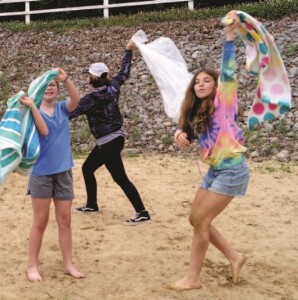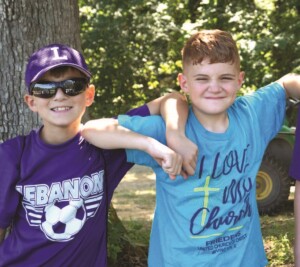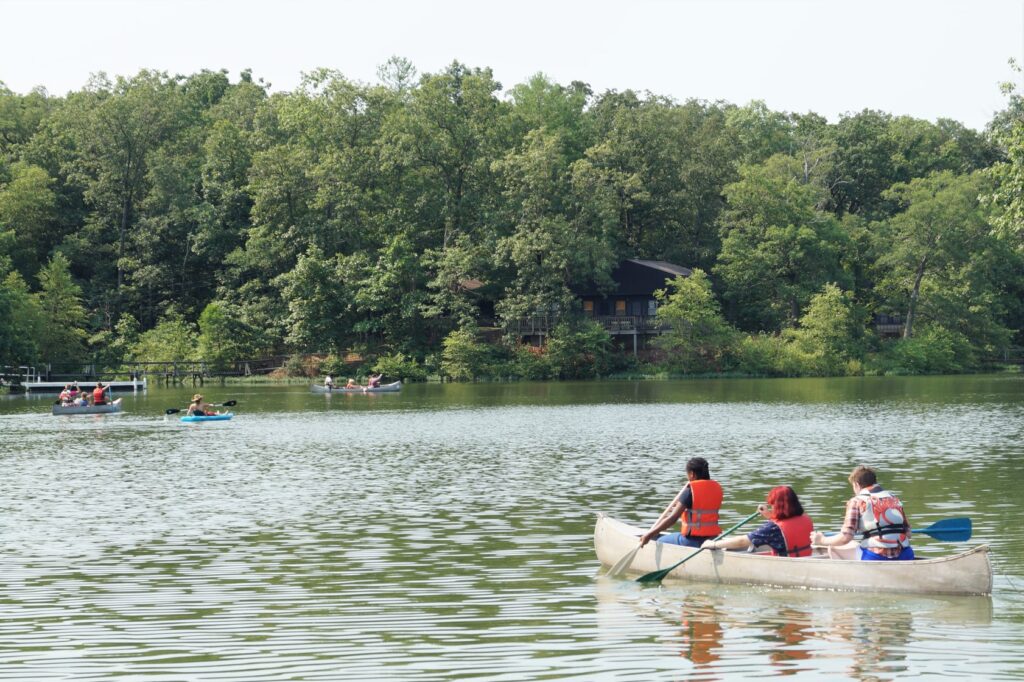Information Packets
- Preparing for Camp
- Parent & Camper Guide
- Health Profile
- Packing Lists
- Pick-Up Authorization Form
- Registration information page
- Campwise (online registration service)
Health Profiles
 Due 2 weeks prior to the start of the camper’s session
Due 2 weeks prior to the start of the camper’s session
A FULLY COMPLETED Health Profile is an absolute requirement for every camper, including adults. The Health Profile does not require a physical exam, but must include current medical information, immunization dates, details about medication and an authorization for treatment. Complete Health Profiles ONLINE! Parent/Guardian signature is required.
Family Share of the Camp Fee
Due 2 weeks prior to the start of the camper’s session
Some churches and organizations pay a portion of the camp fee. The part of the fee to be paid by the family (Family Share) is the amount due a minimum of two weeks prior to the camp session. Early payments are welcome.
Medications
We stock a number of over-the-counter medications, so it is not necessary to send these items. A list of stock medications can be found on the Health Profile.
Be sure to fully complete the medication sections of the Health Profile in detail. ALL medications brought to camp must be in ORIGINAL PACKAGING or PRESCRIPTION CONTAINER. Prescription containers must include the camper’s name, dosage, frequency, and times of administration. All medications, including ibuprofen, vitamins, etc., must be turned in to the Health Care Staff when checking in on the first day of camp. Medications are administered regularly at breakfast, lunch, dinner, and snack/bedtime and irregularly as needed. The Health Center is open for “sick call” after every meal, but our medical staff is available 24 hours a day for whatever may arise.
Do not pre-pull medication or pack it in the camper’s luggage. Put all medications in a gallon-sized zip-lock bag labeled with the camper’s full name. Circle or otherwise highlight the expiration date to expedite medication cataloging.
Exceptions are granted for emergency medications, rescue inhalers, etc under certain circumstances – even if you anticipate this exception to be made for your camper, please arrive prepared to submit medications for inspection at the healthcare check-in station.
Camper Accommodations
If your camper requires special accommodations for a successful camp experience, please contact DuBois Center a minimum of three weeks in advance of the first day of your camper’s session. This allows time for us to strategize together.
We make every effort to serve campers with special needs who are within the scope of our training and staffing capabilities. Because we are a “general” camp, as opposed to a “specialized” camp, we do not have the benefit of extra staff to serve as accommodation specialists or one-on-one chaperones.
Within our cabin and activity groups, we maintain a minimum of one leader per six younger campers, and one leader for each seven or eight older campers. To have a successful summer camp experience at DuBois Center, campers must be able to function within this type of staffing structure.
The sooner we have information about the circumstances, the better able we are to provide appropriate support.
 Camper Mail
Camper Mail
Campers love to receive mail. Please send cheerful, upbeat notes. Avoid mentioning how much you miss your child. Statements like this can cause worries and amplify some of the challenges of being away at camp. Try rephrasing “we can’t wait for you to come home” into “we’re looking forward to hearing all about your time at camp!” It is tempting to send notes for every day of camp – or more! This can be tough on campers who receive little or no mail. One or two letters through a week is usually more than enough. Camper mail can be cards or letters in a sealed envelope, and a sheet of paper folded in thirds and firmly taped shut is also acceptable. Please address your camper mail clearly with the camper’s name and session name.
- Please address your camper mail clearly with the camper’s name AND session name.
- Letters may be left at the “Mail Station” while checking in on the first day of camp. You will have the chance to place your letter in a box for delivery at lunchtime on Monday, Tuesday, Wednesday, or Thursday.
Mail for campers not deposited during check-in may not be delivered. We cannot guarantee delivery of camper mail sent through other methods.
PLEASE – NO CARE PACKAGES!
Packages from home are intended to be symbols of love. For DuBois Center they create problems. Eating and storing food in the cabins and cottages attracts insects and critters. In addition, campers not receiving such treats can feel left out. Please send letters instead. If packages are sent, in most cases, they will be held until the end of the session and sent home with the camper. Do not include food, candy, money, or glitter in any camper mail.
LETTERS HOME
Don’t be alarmed if letters home are brief and sporadic or don’t arrive at all – campers are busy while at camp, and it is unlikely a letter mailed during their week at camp will make it to you before they are back home. You are more likely to receive mail from your camper if you pack pre-addressed, stamped postcards or envelopes.
Many campers feel more comfortable writing, drawing or pasting scraps into a journal or notebook rather than feeling pressured during rest/bedtime to complete and submit an entire letter or postcard. Sending along a small blank notebook with a marker set and a roll of scotch tape can result in a charming and unique camp memento you can review together – and add to through the years!
FOOT, SPINE AND GUT HEALTH
Camp is very active! Some of our most common health problems at camp are caused by unhappy feet, backs, and tummies. Please help your camper succeed with some preparation at home:
Feet: we ask a lot of our feet at camp, and your camper may report to the infirmary with pain if they are not prepared. Inspect your camper’s feet for little cuts, hangnails, fungal infections, dry skin, or other small issues that might become more serious at camp.
- Ensure that campers are bringing loose comfortable shoes in good repair. Blisters are caused by tight shoes.
- Pack plenty of extra socks – we encourage staff and campers to change socks at mid-day. Wet socks cause blisters- and stink! Cotton blend fabrics stay comfortable longer than polyester blends.
- Your camper’s toenails should be trimmed short and straight across. Long toenails can cause cuts, and curved toenails easily become ingrown.
Spine: walking all day while wearing a backpack and sleeping in an unfamiliar bed is a recipe for back pain for many campers, especially teenagers.
- An extra pillow to be tucked under the legs or between the knees is very handy.
- Make sure that your camper is bringing a durable backpack with padded straps.
- Good spine health starts in the feet – double-check your camper’s shoes for proper fit, and consider supportive arch support insoles.
Gut: our camp diet is served cafeteria style, and offers a balance of nutrition – but it is up to your camper to select veggies and fruits each day. Many of our camp tummy troubles are caused by nervousness in bathrooms.
- Speak frankly with your camper about the public bathrooms at camp. Let them in on the open secret that it’s easy to find a quiet, empty bathroom if you time it right. Many campers find it easier to have a private bowel movement during shower time or just before or after a meal.
- Please do not feed your child any heavy, rich, or new meals in the 24 hours before bringing them to camp – first day at camp nerves can be bad enough! Stick to familiar, easily-digested foods and be prepared for some carsickness on the trip to camp. We always serve our much-beloved spaghetti dinner on Sunday nights – it’s okay to arrive hungry! Save that special meal for a welcome home.
HEALTH, SAFETY, and HOMESICKNESS
Time away at camp, for the first time or the tenth, brings a lot of uncertainty. Will I see my friends again? Will the horses like me? What if the food is gross? What if I’m gross? Will I be safe? What if something bad happens?
We have policies, procedures and protocols centered around health and safety at camp. All of our staff is trained in first aid, emergency response, CPR, and all skills necessary to lead at camp in a safe, fun way. We take preparation and safe conduct very seriously, and all of the many rules we have around camp serve to keep everyone safe. We have an infirmary dedicated to preventing and treating camp illness and injury. Our staff communicates site-wide via radio to announce and respond to issues big and small. We have site-wide response plans for emergencies including bad weather – and loads of special activities we only break out on rainy days!
ON HOMESICKNESS:
If your camper is articulating anxiety about camp, there is usually a specific concern underneath general complaints.
For example, “camp is dirty and full of bugs” may be a real concern about maintaining hygiene or finding a spider in the bunk. Talk out your camper’s plan for packing adequate hygiene supplies and assure them of the chance to shower daily. Talk about the importance of making a bed (yes, really) in a camp environment to keep critters out – maybe even practice making a bed tightly at home!
A complaint like “no one will like me” or “everyone there sucks” may be masking a real concern about fitting in, making friends, or being left out. We facilitate get-to-know-you activities and keep a close eye on bullying or exclusionary behavior. Some campers come prepared with pre-made friendship bracelets, knock-knock jokes, magic tricks, or hair-braiding skills that make it even easier to connect with others. There is no clearer path to making friends than being a friend – being kind, helping others, and having respect for the space and needs of others always goes a long way.
If your child manages a chronic illness or is recovering from an injury, they may be concerned about exacerbation at camp, or being left out of their favorite activities. We have welcomed campers with limited mobility, insulin-dependent diabetes, freshly installed braces, and more – and seen them exceed their own expectations every time. Assure them that they’ll have the support they need and the independence they crave. Take some time to supervise independent practice of the skills your camper will need to manage their own health at camp and throughout their life: including asking for help!
If your child has expressed concern about the amount of walking or “never getting enough sleep,” incorporating some walks or hikes to your routine at home may boost their confidence. Practicing sleeping with a soft eye mask or earplugs at home will make those tools far more useful at camp.
All that to say, there is no better cure for fear than preparation. If your child seems down about their time at camp, talk to them – see what’s really worrying them. Every aspect of camp is prepared for on our end – but that’s a lot to ask of a young person to believe – and we strongly encourage practicing camp skills at home.
Homesickness is a word often used as a “catch-all” for these feelings. Young people don’t have all the words to describe being overwhelmed or feeling unprepared. “I want to go home” is often an easier way to express a more complex struggle. We have found that identifying and addressing the concern and facilitating a rapid return to the positive aspects of camp is always the solution. For young people who live with anxiety and trauma, we hope to assist our young friends as they grow into strong adults by walking with them through the process of identifying and solving underlying problems, rather than assuring them they’re “just homesick.”
Many campers do miss their home, bed, pets, and family! We encourage these campers to write journals and letters home and to stock up on camp stories to share when they return. We do not permit campers to call home as this usually makes things much worse. Please do not promise your camper a phone call in the case of trouble adjusting – our staff is prepared to assist your camper in adjusting to camp life.
Dear camper, we will help you. We will keep you safe. We know what to do if something bad happens, and we will do it together. – your friends at DuBois Center

